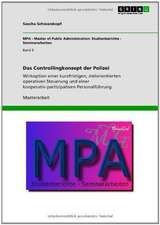Web Security: A WhiteHat Perspective
Autor Hanqing Wu, Liz Zhaoen Limba Engleză Paperback – 6 apr 2015
In this book, web security expert Wu Hanqing reveals how hackers work and explains why companies of different scale require different security methodologies. With in-depth analysis of the reasons behind the choices, the book covers client script security, server applications security, and Internet company security operations. It also includes coverage of browser security, cross sites script attacks, click jacking, HTML5/PHP security, injection attacks, authentication, session management, access control, web frame security, DDOS, leaks, Internet transactions security, and the security development lifecycle.
Preț: 694.45 lei
Preț vechi: 868.06 lei
-20% Nou
Puncte Express: 1042
Preț estimativ în valută:
132.88€ • 139.02$ • 110.39£
132.88€ • 139.02$ • 110.39£
Carte tipărită la comandă
Livrare economică 02-16 aprilie
Preluare comenzi: 021 569.72.76
Specificații
ISBN-13: 9781466592612
ISBN-10: 1466592613
Pagini: 532
Ilustrații: 306 black & white illustrations, 10 black & white tables
Dimensiuni: 178 x 254 x 30 mm
Greutate: 0.98 kg
Ediția:1
Editura: CRC Press
Colecția Auerbach Publications
ISBN-10: 1466592613
Pagini: 532
Ilustrații: 306 black & white illustrations, 10 black & white tables
Dimensiuni: 178 x 254 x 30 mm
Greutate: 0.98 kg
Ediția:1
Editura: CRC Press
Colecția Auerbach Publications
Public țintă
IT security practitioners, IT security hobbyists, Web developers, web architects, Internet product managers, students, and anyone interested in web security.Cuprins
My View of the Security World. View of the IT Security World. Safety on the Client Script. Security of Browser. Cross-Site Scripting Attack. Cross-Site Request Forgery. Clickjacking. HTML 5 Securities. Application Security on the Server Side. Injection Attacks. File Upload Vulnerability. Authentication and Session Management. Access Control. Encryption Algorithms and Random Numbers. Web Framework Security. Application-Layer Denial-of-Service Attacks. PHP Security. Web Server Configuration Security. Safety Operations of Internet Companies. Security of Internet Business. Security Development Lifecycle. Security Operations.
Notă biografică
Axie Wu was a founder of ph4nt0m.org, one of China’s famous domestic security organizations. He is proficient in different offensive and defensive techniques with regard to web security. He joined Alibaba Co., Ltd, China, after his graduation from Xi’an Jiaotong University in 2005 and became the youngest expert level engineer in Alibaba by 2007. He then designed the network security systems for Alibaba, Taobao, and Alipay. He was completely involved in the security development process for Alibaba, where he gained extensive experience in the field of application security. From 2011 onward, he has been a security architect in Alibaba, responsible for group-wide web security and cloud computing security. Wu is currently product vice president of Anquanbao.com and is responsible for the company’s product development and design. He also leads the Zhejiang chapter of OWASP China.
Lizzie Zhao graduated from the University of Bridgeport, Connecticut, in 2001. She then worked at a computer training institute in New York City. Two years later, she returned to China and took up work with the subsidiary of a software company at the institute of the Chinese Academy of Sciences (CAS) as a project manager and system architect. In 2006, she joined the information technology promotion office of CECA (China E-Commerce Association). In 2007, she cofounded the RWStation (Beijing) Network Technology Co., Ltd., with other shareholders, and has since managed the company. From September 2011, Liz has focused her attention on China’s network security issues and has aimed to help enterprises in China with system security and network security business. She initiated the establishment of the Union SOSTC Alliance (Security Open Source Technology of China) with the help of other Chinese and overseas security experts. She is also a popular consultant for IT security service for various companies and for the Chinese government. Liz is currently the head of the STTC (Security Technology Training Center) and plans training activities with many universities in China, such as Northwestern Polytechnical University and Xidian University.
Lizzie Zhao graduated from the University of Bridgeport, Connecticut, in 2001. She then worked at a computer training institute in New York City. Two years later, she returned to China and took up work with the subsidiary of a software company at the institute of the Chinese Academy of Sciences (CAS) as a project manager and system architect. In 2006, she joined the information technology promotion office of CECA (China E-Commerce Association). In 2007, she cofounded the RWStation (Beijing) Network Technology Co., Ltd., with other shareholders, and has since managed the company. From September 2011, Liz has focused her attention on China’s network security issues and has aimed to help enterprises in China with system security and network security business. She initiated the establishment of the Union SOSTC Alliance (Security Open Source Technology of China) with the help of other Chinese and overseas security experts. She is also a popular consultant for IT security service for various companies and for the Chinese government. Liz is currently the head of the STTC (Security Technology Training Center) and plans training activities with many universities in China, such as Northwestern Polytechnical University and Xidian University.
Descriere
This book presents a comprehensive guide to web security and explains how companies can build a highly effective and sustainable security system. It reveals how hackers work and explains why companies of different scale require different security methodologies. With in-depth analysis of the reasons behind the choices, the book covers client script security, server applications security, and Internet company security operations. It also includes coverage of browser security, click jacking, injection attacks, web frame security, leaks, transactions security, and security development lifecycle.


















